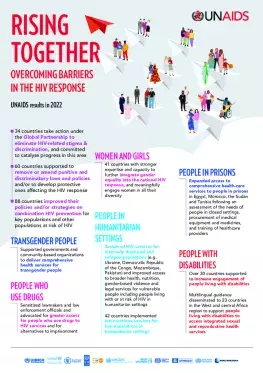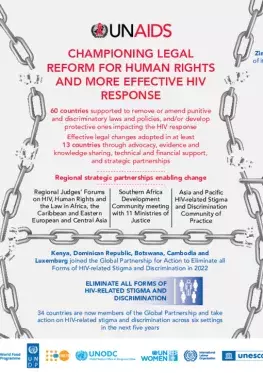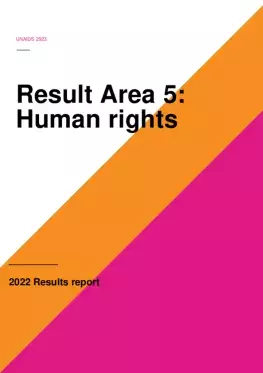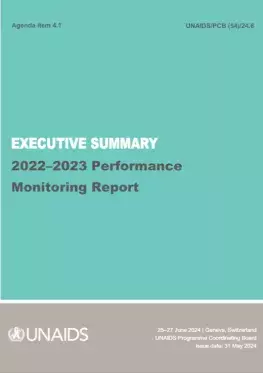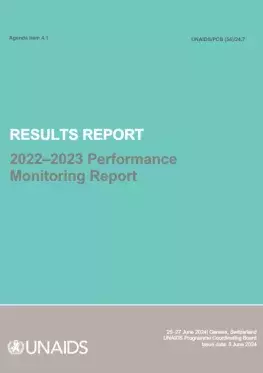Stigma, discrimination and other human rights violations in the context of HIV both reflect and drive the inequalities that undermine HIV responses. Everyone, including people living with and affected by HIV, should enjoy human rights, equality and dignity.
The Global AIDS Strategy 2021 – 2026 seeks to ensure that, by 2025, less than 10% of countries have punitive legal and policy environments, less than 10% of people living with HIV and key populations experience stigma and discrimination, and less than 10% of women, girls, people living with HIV and key populations experience gender inequality and violence. 15 countries de-criminalized consensual same-sex sexual acts between 2016 and 2023. Yet progress is slow. Many human rights, stigma and discrimination barriers remain and greatly affect access to HIV services and effective HIV responses for all. The removal of laws that target people living with HIV, key and other priority populations and concerted efforts to end HIV-related stigma and discrimination are high priorities.


